Seaview est un film de genre Documentaire
Seaview (2009)
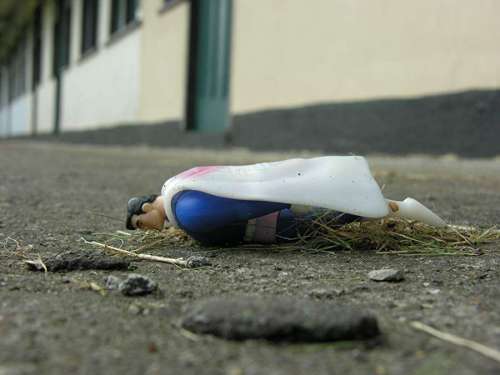
Si vous aimez ce film, faites-le savoir !
- Infos
- Casting
- Infos techniques
- Photos
- Vidéos
- Passages TV
- Citations
- Personnages
- Musique
- Récompenses
Seaview is a 2007 documentary film directed by Nicky Gogan and Paul Rowley. The film chronicles the lives of a group of asylum seekers living in the former Butlin's Holiday Camp at Mosney, Ireland. The film takes an innovative approach to the use to sound and image in telling the stories of the Mosney residents. This has much to do with the past work of the directors, which has been focused on video art and gallery installation projects.
The film premiered in the Forum section of the 2008 Berlin Film Festival and has since shown at many festivals internationally, including Hot Docs in Toronto, Silverdocs, Sheffield Doc-Fest, and the Rio de Janeiro and São Paulo Film Festivals. The film was nominated in the best feature documentary category at the 2009 Irish Film and Television Awards (IFTAs).
Commentaires
Postez un commentaire :
Suggestions de films similaires à Seaview
Il y a 8963 ayant les mêmes genres cinématographiques, 3242 films qui ont les mêmes thèmes (dont 52 films qui ont les mêmes 3 thèmes que Seaview), pour avoir au final 70 suggestions de films similaires.Si vous avez aimé Seaview, vous aimerez sûrement les films similaires suivants :

Well-Founded Fear (2000)
, 1h59Réalisé par Shari Robertson, Michael Camerini
Origine Etats-Unis
Genres Documentaire
Thèmes L'immigration, Documentaire sur le droit, Documentaire sur une personnalité
Note73%





On average, only one in two hundred asylum applicants is ever admitted as a refugee to the U.S. A refugee is defined as someone afraid to return home for fear of persecution on account of race, religion, nationality, social group or political opinion. Any foreign citizen who is able to find a path into the U.S. is eligible to apply for refugee protection in the form of political asylum. At the time of filming, the former Immigration and Naturalization Service (INS) handled all requests for asylum.

Harga (2010)
, 27minutesOrigine France
Genres Documentaire
Thèmes L'immigration, Documentaire sur le droit, Documentaire sur une personnalité
Hichem rêvait de « harga » depuis tout petit. Un jour, il a pris la mer vers l'Europe, il a tenté le grand voyage interdit, sur un bateau de fortune avec 27 concitoyens, dont certains étaient des amis ; seul Hichem est revenu. D'autres Tunisiens racontent, de leur côté, pourquoi ils ont voulu ou voudraient quitter le pays : la misère, le chômage, l'impossibilité de se projeter dans l'avenir, l'impasse dans laquelle ils se trouvent.
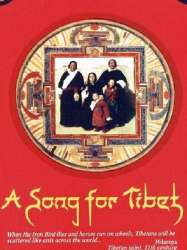
Le Tibet : chant d'exil (1991)
, 57minutesOrigine Canada
Genres Documentaire
Thèmes Film sur un écrivain, L'immigration, Religion, Le Tibet, Documentaire sur le droit, Documentaire sur une personnalité, Documentaire sur la politique, Documentaire sur la religion, Politique, Bouddhisme
Note72%





 , 52minutes
, 52minutesOrigine Algerie
Genres Documentaire
Thèmes Afrique post-coloniale, L'immigration, Documentaire sur le droit, Documentaire sur la guerre, Documentaire historique, Documentaire sur une personnalité, Documentaire sur la politique, Politique
En 1939, la fin de la guerre civile espagnole oblige des milliers d’hommes, de femmes et d’enfants à fuir l’Espagne franquiste. En Algérie, l’administration française ouvre des camps pour les accueillir. 70 après, un jeune Algérien enquête sur ces camps. Malgré l’absence d’archives, les traces ont survécu à l’oubli collectif et transparaissent dans l’Algérie d’aujourd’hui.
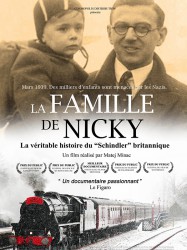
La Famille de Nicky (2011)
, 1h36Réalisé par Matej Mináč
Genres Drame, Documentaire
Thèmes L'immigration, Le racisme, Religion, Documentaire sur la discrimination, Documentaire sur le droit, Documentaire sur la guerre, Documentaire historique, Documentaire sur une personnalité, Documentaire sur la religion, Politique, Religion juive, Documentaire sur la Seconde Guerre mondiale
Acteurs Klara Issova
Note80%





"La famille de Nicky" est l'histoire extraordinaire de Nicholas Winton, surnommé le Schnindler britannique, qui avant le début de la seconde guerre mondiale, entre mars et août 1939, a sauvé 669 enfants tchèques et slovaques, pour la plupart juifs, du génocide nazi. Le film mêle fiction, documents d'archives inédits, et témoignages émouvants des protagonistes de cette histoire, parmi lesquels Nicholas Winton en personne et Joe Schlesinger, journaliste à la CBC et narrateur du film. La "famille" de Nicholas Winton compte aujourd'hui plus de 5 000 personnes dans le monde entier, qui lui doivent la vie.
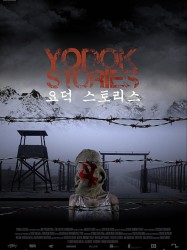
Yodok Stories (2008)
Genres Documentaire
Thèmes L'immigration, Documentaire sur le droit, Documentaire sur une personnalité
Note74%





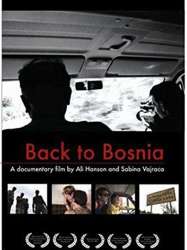
Back to Bosnia (2005)
, 1h15Réalisé par Sabina Vajrača
Genres Guerre, Documentaire
Thèmes L'immigration, Documentaire sur le droit, Documentaire historique, Documentaire sur une personnalité, Politique
Note76%





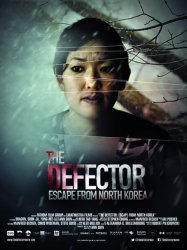
Genres Documentaire
Thèmes L'immigration, Documentaire sur le droit, Documentaire sur une personnalité
Note71%






Parcours de réfugiés (2009)
, 52minutesRéalisé par Ali Benjelloun
Origine Maroc
Genres Documentaire
Thèmes L'immigration, Documentaire sur le droit, Documentaire sur une personnalité
Aux portes de l'Europe, le Maroc voit arriver de plus en plus d'immigrés dont le but est souvent de se rendre vers les pays du Nord. Mais d'autres, moins nombreux, arrivent au Maroc espérant y trouver refuge. Originaires de Côte d'Ivoire, du Togo, de la République démocratique du Congo, de la Palestine ou encore d'Irak, ils ont fui leur pays d'origine. Ils sont environ mille à posséder ainsi une carte de réfugié politique, délivrée par le Haut commissariat des Nations unies pour les réfugiés (UNHCR). Mais posséder cette carte ne facilite guère la vie sur le territoire marocain.
 , 1h16
, 1h16Origine Etats-Unis
Genres Documentaire
Thèmes Afrique post-coloniale, L'immigration, Documentaire sur le droit, Documentaire sur la guerre, Documentaire historique, Documentaire sur une personnalité
Note71%





In 2006, producer/director Lisa F. Jackson travelled alone to the war zones of the Democratic Republic of the Congo documenting the plight of women and girls impacted by the conflicts there. She was "afforded privileged access" to the realities of life in Congo, and found "examples of resiliency, resistance, courage and grace". In a 2008 interview with NPR, Jackson said "I knew going to eastern Congo as a white woman alone in the bush with a video camera that I might as well have landed from a spaceship." Jackson had been a victim of gang rape thirty years earlier, and shared this experience with the survivors she interviewed. Much of the film features these women recounting their stories, which have left them "traumatised and isolated - shunned by society and their families, and suffering life-long health effects, including HIV." Context and background are discussed in interviews with doctors, politicians, peacekeepers, activists and priests. Jackson visits a clinic devoted to treating women with traumatic injury due to sexual violence, particularly cases of vesicovaginal and rectovaginal fistula. In addition, Jackson went out into the bush to interview some of the perpetrators, soldiers who spoke without apparent conscience about the women they had raped, and their often bizarre justifications. "You really can say that there's a culture of impunity in the Congo, where none of these men will face arrest for what they've confessed to me on videotape," Jackson noted. The focus of the film, though, is the stories of the victims, "who just poured their hearts out to me with these stories, including over and over again, please take these stories to someone who will make a difference.
 Connexion
Connexion